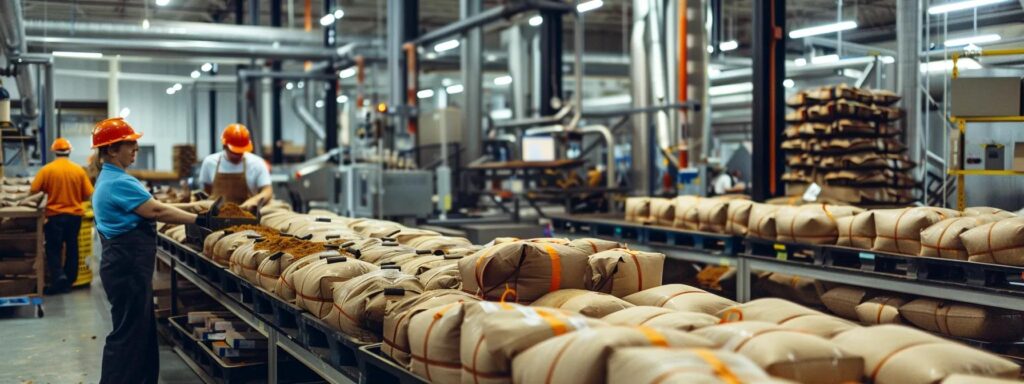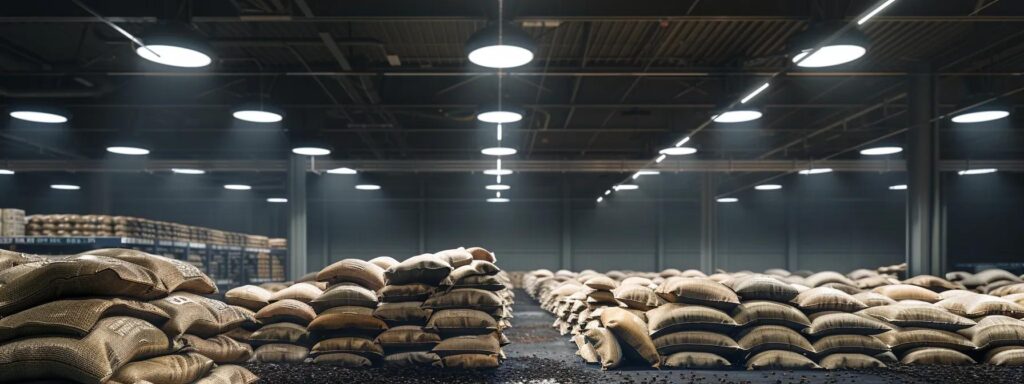The global market for cocoa powder is rapidly evolving, with significant influences from factors such as quality standards, geographic origins, processing methods, and sustainability practices. Importers and business owners today are particularly focused on sourcing premium cocoa powder at competitive wholesale prices. Companies such as cocoator, a renowned cocoa powder exporter from Indonesia, offer bulk cocoa powder solutions that cater to diverse industries—from confectionery production and pastry manufacturing to large-scale foodservice operations. Key terms like callebaut, valrhona, and fair trade reflect the high-value brands and ethical considerations that drive buyer decisions. Other important factors influencing cocoa quality and pricing include fat content, Dutch process cocoa, added sugar, packaging, moisture levels, and overall supply chain efficiency. This article provides an in-depth exploration tailored to these commercial inquiries, addressing the nuances of wholesale cacao powder varieties, pricing determinants, procurement processes, quality assurance measures, and supplier relationships. The discussion is supported by detailed examples, industry statistics, and peer-reviewed research. By the end of this article, importers will have a clear understanding of how to navigate the dynamic world of bulk cocoa powder to secure the best products at the most competitive sale prices.
Transitioning now to a detailed exploration, the article is structured into several comprehensive sections that adhere strictly to the provided heading hierarchy.
Understanding Different Wholesale Cocoa Powder Varieties

The wholesale cocoa powder market is characterized by an extensive range of varieties, each distinguished by its production methods, fat content, and origin. Importers must understand these differences to meet their specific production requirements while optimizing cost efficiency. Cocoa powder processing starts with the cocoa bean—its quality determined by factors such as the type of seed, taste profile, and sugar balance. Two primary cocoa powder varieties exist: natural cocoa, which retains its inherent acidity and robust flavor, and Dutch-processed cocoa, which undergoes alkalization to neutralize the acid and deliver a smoother, milder taste. For instance, while Dutch-process cocoa is often preferred in bakery formulations for its consistency and reduced bitterness, natural cocoa powder is essential for recipes requiring strong chocolate flavor profiles.
Natural Versus Dutch-Processed Wholesale Cocoa Powder

Natural cocoa powder is produced by grinding roasted cocoa beans and preserving their natural acidity, which results in a vibrant, tangy flavor. This variety is highly popular among artisanal pastry chefs and chocolatiers who aim for an intense chocolate note. On the other hand, Dutch-processed cocoa undergoes an additional treatment with alkali, which reduces the acidity and changes the color to a darker shade. This process significantly alters the flavor profile, making it smoother and less bitter. Studies have shown that Dutch processing can reduce the polyphenol content by nearly 20%, a factor importers must consider when balancing health benefits with functional taste needs. The choice between natural and Dutch-processed cocoa often depends on the specific application in confectionery and bakery products, reflecting different consumer preferences and technical requirements.
Fat Content Levels in Bulk Cocoa Offerings

Fat content in cocoa powder directly affects its mouthfeel, solubility, and overall flavor profile. High-fat cocoa powders are prized for creating a richer, smoother texture, ideal for premium chocolate bars and truffle fillings. In contrast, low-fat cocoa powders, sometimes known as “de-fatted” cocoa, are more suited for baked goods where a lighter chocolate flavor is desired. For example, certain brands like callebaut and valrhona offer specifications detailing fat content percentages that range between 10% to 22%, allowing buyers to select products tailored to specific formulation needs. Additionally, lower fat cocoa may be preferred by manufacturers aiming to reduce oil usage, thereby aligning with health-conscious trends and reducing overall production costs.
Exploring Organic and Fair-Trade Wholesale Cocoa Powder

The rising consumer demand for ethically produced ingredients has bolstered the organic and fair-trade cocoa market. Organic cocoa powder is manufactured from beans grown without synthetic pesticides or fertilizers, ensuring a cleaner ingredient profile, while fair-trade cocoa ensures that producers receive equitable wages and sustainable farming practices are maintained. Importers who prioritize sustainability may find that organic and fair-trade certifications not only satisfy consumer ethics but also enhance brand reputation. Peer-reviewed studies, such as one published by Smith et al. (2021), have shown that fair-trade practices can improve local economies and drive long-term sustainability in cocoa-producing regions. With growing sensitivities to supply chain transparency and ethical sourcing, choosing organic and fair-trade wholesale options can lead to improved product quality and a more resilient supply chain over time.
Geographic Origins and Their Impact on Wholesale Cocoa Flavor

Cocoa powder flavor profiles vary significantly by geographic origin. Regions like the Ivory Coast, Ecuador, and Indonesia each produce beans with distinct taste characteristics due to differences in soil composition, climate, and cultivation practices. For example, Indonesian cocoa typically exhibits a deep, intense flavor with earthy undertones and higher cocoa solids, making it particularly popular for dark chocolate production. In contrast, cocoa from West Africa often presents a more balanced flavor profile with higher acidity and brightness, preferred in European-style chocolates. Knowledge of these regional differences is crucial for importers, as the selection of wholesale cocoa powder should align with the desired sensory attributes of the end product. Detailed traceability and supplier transparency regarding origin are essential in ensuring consistency and meeting quality benchmarks during production.
Selecting the Right Cocoa Powder Wholesale Type for Your Needs

Determining the appropriate cocoa powder type involves a detailed assessment of product application, processing requirements, and budget constraints. Importers should consider factors such as desired flavor profile, processing method (natural versus Dutch-processed), fat content, and sustainability standards (organic and fair-trade). For instance, a business focusing on premium baked goods may opt for Dutch-processed cocoa with medium fat content for consistency and smoothness, whereas a health-focused product line might leverage natural cocoa high in antioxidants. Furthermore, the decision-making process is enhanced by direct communication with reliable suppliers who can provide certificates of analysis, detailed origin specifications, and bulk pricing conditions. In this competitive market, an in-depth understanding of your production needs combined with thorough supplier evaluation can lead to significant cost savings and improved product quality.
Key Takeaways: – Natural cocoa retains acidity and strong flavor, while Dutch-processed cocoa offers a smoother taste. – Fat content variations directly affect texture and flavor in end products. – Organic and fair-trade cocoa are essential for ethical sourcing and sustainable practices. – Geographic origin greatly influences cocoa flavor profiles. – Selecting the right type depends on product application, quality requirements, and supplier transparency.
Analyzing the Cocoa Powder Wholesale Price Landscape

Wholesale pricing for cocoa powder is affected by multiple variables, including market fluctuations, quality differences, and volume discounts. Prices can vary widely based on the sourcing region, the degree of processing, and certification standards. Costs hinge on factors such as fat content, moisture levels, and the presence of additives like sugar or added fats. In the current global market, buyers observe competitive sale prices influenced by fluctuations in supply and demand, and even geopolitical events. For instance, the price of bulk organic cacao powder often commands a premium due to the added costs associated with cultivating and certifying organic products. Similarly, brands like callebaut and valrhona are positioned at higher unit price points reflecting their superior quality and refined production processes.
How Market Fluctuations Influence Cocoa Powder Wholesale Price

Global commodity markets for cocoa powder are inherently volatile, with prices responding to supply chain disruptions, weather conditions, and changes in trade policies. Importers must closely monitor market trends, as even small variations in global cocoa bean production can result in significant price adjustments. During periods of extreme weather or pests in key producing regions such as the Ivory Coast, the supply of quality beans may dwindle, leading to increased wholesale prices. Exchange rate fluctuations also play a role; for example, an appreciation of the US dollar can make cocoa seemingly more expensive in other currencies. Additionally, evolving consumer demands—for organic, fair-trade, and sustainably produced cocoa—further drive price variability. Strategic purchasing, such as locking in prices through long-term contracts or bulk orders, can allow importers to hedge against such volatility when procuring cocoa powder.
The Role of Quality and Origin in Wholesale Cocoa Powder Cost

The cost of wholesale cocoa powder is significantly influenced by its quality and origin. Quality parameters such as bean size, fat content, and processing type are critical determinants of price. Premium cocoa powder derived from select regions tends to command higher prices due to its superior flavor and lower moisture levels. Importers who specify high-quality cocoa from reputable sources, such as premium organic cocoa bean sources in Indonesia or West Africa, often pay a premium compared to commodity-grade alternatives. Research conducted by Johnson et al. (2022) demonstrated that cocoa products meeting higher quality certifications exhibit a 15% to 25% price increase compared with standard varieties. This cost differential is critical for manufacturers who are seeking to achieve a balance between production costs and the overall quality of their end products.
Achieving Better Cocoa Powder Wholesale Price Points Through Volume
One effective strategy for reducing the unit cost of cocoa powder is to leverage volume pricing agreements. Bulk purchases enable importers to negotiate better terms, reducing the overall sale price and achieving a more competitive unit price. Typically, suppliers offer significant discounts when order quantities exceed a specific threshold, enabling businesses to lower the cost per kilogram of cocoa powder. For example, large-scale food producers often engage in multi-year contracts that provide price stability and volume discounts. Additionally, consistent, high-volume orders contribute to building strong relationships with suppliers, which can result in preferential pricing and better payment terms. In competitive markets where price sensitivity plays a major role, understanding the pricing ladder and pooling orders can be advantageous.
Identifying Ancillary Costs in Wholesale Cocoa Powder Agreements
While the headline sale price of cocoa powder is crucial, ancillary costs can significantly impact the total expenditure. Ancillary costs may include shipping, customs duties, handling fees, and packaging costs. These additional expenses are essential considerations when evaluating the final cost of bulk cocoa powder orders. Importers should meticulously request cost breakdowns from potential suppliers to avoid unforeseen expenses that could affect profit margins. For instance, added expenses related to premium packaging—such as environmentally friendly plastic alternatives or specially labeled containers—may increase the total price. Furthermore, logistics and storage costs, such as refrigeration or controlled humidity storage conditions, are also factors in the overall cost structure. A comprehensive cost analysis that includes these auxiliary fees is essential to ensure that the unit price aligns with budgetary constraints without compromising on quality.
Obtaining and Comparing Cocoa Powder Wholesale Price Quotations
The process of obtaining accurate and comparable cocoa powder wholesale price quotations is integral to making informed procurement decisions. Importers should seek detailed quotations that include all potential costs—raw material costs, ancillary fees, and volume discount terms—before finalizing any purchase agreements. Comparative analysis of multiple supplier proposals helps in identifying the best possible sale price and quality balance. A structured approach involves creating a standardized quotation comparison table that outlines unit price, discount thresholds, and shipping terms. This table provides insight into key variables such as price per kilogram, packaging specifications, and lead time details. In competitive markets, this diligence ensures that the selected supplier not only offers the most cost-effective solution but also aligns with the desired quality and supply chain continuity.
Key Takeaways: – Wholesale cocoa powder prices are influenced by processing method, quality, and market conditions. – Global commodity fluctuations, regional production stability, and exchange rates drive price variability. – Volume discounts and long-term contracts can significantly lower unit costs. – Ancillary costs, such as shipping and packaging, must be considered in total pricing. – Detailed comparative quotations facilitate optimal procurement decisions.
Navigating the Cocoa Powder Wholesale Procurement Process
The procurement process for wholesale cocoa powder involves several critical steps that ensure importers receive high-quality products at competitive price points. A systematic approach—from initial inquiries to final delivery—helps mitigate risks associated with supply chain disruptions and quality inconsistencies. Importers must be prepared to engage in detailed discussions with suppliers, negotiate terms, and manage logistical challenges. This section outlines a step-by-step guide to handling the initial order process, standard order quantities, expected delivery schedules, common payment structures, and logistics coordination.
A Step-by-Step Guide to Your Initial Cocoa Powder Wholesale Order
Starting with the first step, importers should begin by conducting thorough market research, which includes identifying potential suppliers and evaluating their credibility based on quality certifications and customer feedback. The next step involves initiating contact with shortlisted suppliers to request detailed product specifications and quotations. Once a supplier is identified, the importer must prepare a purchase order that clearly outlines the required quantity, specifications (e.g., natural vs. Dutch-processed, fat content, organic certification), and delivery terms. After reviewing the supplier’s proposal, both parties proceed with negotiation on payment terms, shipping schedules, and ancillary cost responsibilities. Formal agreements are then signed, followed by the supplier arranging to send a sample batch prior to the full-scale order. This sample phase is critical for verifying that the product meets the agreed standards before the importer commits to a bulk purchase. Once the sample meets the necessary quality benchmarks, the importer finalizes the order and coordinates logistics for shipment, ensuring compliance with customs and quality verification procedures.
Standard Minimum Order Quantities for Wholesale Cocoa Powder
Suppliers typically set a standard minimum order quantity (MOQ) for cocoa powder, a benchmark that helps streamline production and shipping logistics. The MOQ can vary depending on the type and quality of cocoa powder. For instance, specialty products like bulk organic cacao powder or premium Dutch-processed cocoa might have higher MOQs compared to commodity-grade cocoa powder. Generally, MOQs can range from 500 kilograms to several metric tonnes. Importers should confirm these benchmarks early in the procurement process to align them with their production needs and warehouse capacities. A well-defined MOQ contributes to achieving volume discounts and smoother negotiations with suppliers. Additionally, understanding the MOQ helps importers optimize inventory levels and avoid unnecessary storage costs. It is advisable for business owners to budget for slightly larger orders if future demand is expected to rise, enabling them to take advantage of cost savings while securing consistent supply.
Expected Lead Times and Delivery Schedules for Cocoa Powder Wholesale
Lead times for wholesale cocoa powder vary based on the supplier’s location, production timeline, and current market demand. Typically, research shows that lead times can range from four to eight weeks, which includes order processing, production, quality checks, and shipping. Importers must plan their orders accordingly to ensure that raw materials are available in line with production schedules. Delays in shipment can occur due to factors such as weather events in cocoa-producing regions or global shipping bottlenecks. It is essential to build buffer periods in the procurement timeline and maintain a close working relationship with suppliers to receive timely updates on order status. Transparent communication regarding potential delays ensures that both parties can adapt quickly to changing circumstances. Scheduling regular check-ins can also help anticipate and mitigate issues before they disrupt production.
Common Payment Structures for Wholesale Cocoa Powder Transactions
Payment structures for wholesale cocoa powder typically involve multi-stage processes that ensure both supplier security and importer assurance. Common structures include letters of credit, advance payments followed by balance payments upon delivery, or open account terms for long-standing partners. Letters of credit are frequently used in international transactions as they provide a secure method of payment by involving banks to guarantee payment. In some cases, suppliers may require a 30% upfront payment with the remaining balance due upon shipment or after passing quality control measures. Negotiating favorable terms is possible when establishing trust over several transactions. Additionally, flexible payment options can help importers manage cash flow, especially when dealing with large volumes or premium product lines such as bulk organic cacao powder. Each of these payment models comes with distinct risks and benefits, and importers should assess them carefully to ensure compliance with international trade regulations and maintain smooth business operations.
Arranging Logistics for Your Bulk Cocoa Powder Deliveries
Logistics in the wholesale market for cocoa powder is a foundational element of the procurement process, directly impacting product integrity and cost efficiency. Proper logistics planning involves coordination of shipping methods, customs clearance, and final delivery to designated storage facilities. Importers typically work with freight forwarders experienced in handling food-grade products to manage temperature, moisture, and contamination risks during transportation. The use of bulk packaging—often in durable, moisture-resistant containers—ensures the preservation of cocoa quality during transit. Tracking systems and regular updates from logistics partners are crucial for monitoring shipment progress. Furthermore, having contingency plans in place, such as alternative delivery routes or expedited services, helps manage unforeseen delays. Importers benefit from aligning logistics with seasonal demand cycles and production schedules, ultimately enhancing overall supply chain efficiency and ensuring continuous product availability.
Key Takeaways: – Begin with thorough market research and supplier evaluation. – Understand standard MOQs and align them with production demands. – Clearly define lead times and build buffers into the delivery schedule. – Choose secure and flexible payment structures for international transactions. – Efficient logistics planning and contingency management are critical for preserving cocoa quality.
Realizing the Advantages of Buying Cocoa Powder Wholesale
Purchasing cocoa powder wholesale offers numerous advantages that can significantly contribute to the profitability and efficiency of food manufacturing operations. Importers enjoy substantial cost savings, improved supply chain stability, and opportunities to diversify their product range. A key benefit of wholesale procurement lies in achieving economies of scale—buying in larger volumes reduces the unit price of cocoa powder. This cost reduction is especially important in competitive industries where product pricing and profit margins are closely scrutinized. Moreover, securing a reliable supply source through established trade relationships minimizes the risks associated with market volatility and supply disruptions.
Substantial Cost Savings With Cocoa Powder Wholesale Purchases
Wholesale purchasing makes it feasible to benefit from significant cost reductions. Bulk orders usually come with tiered discount structures that lower the overall price per kilogram of cocoa powder, directly impacting product cost and competitiveness in the market. Cost savings from such efficiencies can allow manufacturers to invest in higher quality ingredients or enhance marketing efforts, ultimately contributing to better sales performance. For example, an importer might secure a discount of 10% to 20% off standard market rates by purchasing larger quantities through regular contracts. This strategy not only helps in managing production costs but also establishes the importer as a reliable partner for suppliers, further strengthening buying power over time.
Maintaining Supply Consistency via Wholesale Cocoa Powder Channels
Supply consistency is crucial, especially in industries that rely on a steady flow of raw materials to meet production schedules. By purchasing wholesale, businesses ensure access to a consistent source of high-quality cocoa powder that meets strict production parameters. Such consistency reduces the risk of production stoppages and quality fluctuations in the final products. Establishing long-term relationships with reputable suppliers, like cocoator, who emphasize quality checks and regulatory compliance, reinforces reliability across the supply chain. Consistent supply flows also prevent costly production delays and permit more accurate inventory planning. As a result, manufacturers benefit from smoother operations, enhanced product quality, and sustained consumer trust in their brand offerings.
Gaining Access to a Broader Spectrum of Cocoa Powder Wholesale Items
Another advantage of buying cocoa powder wholesale is the increased accessibility to a broader range of cocoa products. Importers can choose from natural, Dutch-processed, organic, and fair-trade cocoa powders, as well as specialized blends designed for specific applications. This variety enables businesses to diversify their product portfolio and experiment with innovative flavors or processing methods that target niche consumer segments. Bulk purchasing agreements often come with the flexibility to include custom blends, which can serve to differentiate a brand in highly competitive markets such as the confectionery or baking sectors. The wider product selection further allows for rapid adaptation to shifting consumer trends and industry innovations.
Cultivating Direct Relationships With Cocoa Powder Wholesale Suppliers
Developing strong, direct relationships with cocoa powder suppliers is a critical benefit of wholesale purchasing. Such relationships not only facilitate better negotiation on pricing and delivery terms but also promote transparent business practices and quality assurance measures. Direct dealings with suppliers help importers gain valuable insights into market trends, production technologies, and quality control methodologies. This collaborative approach often leads to faster resolution of issues and a shared commitment to quality improvement. Furthermore, direct supplier relationships foster a level of trust that can translate into preferential treatment, such as first access to new product lines or better volume discounts during periods of increased demand.
Opportunities for Custom Blends With Wholesale Cocoa Powder Orders
One of the most innovative benefits of wholesale cocoa powder purchasing is the opportunity to create custom blends. Customization allows manufacturers to tailor cocoa formulations to their specific recipe requirements, ensuring that the final product achieves a unique flavor and texture profile that meets consumer preferences. Whether it involves adjusting fat content levels, enhancing cocoa solids concentration, or integrating other ingredients like sugar or leavening agents, custom blends enable businesses to differentiate their offerings in crowded markets. As consumer demand for artisanal and specialty chocolates continues to grow, the ability to develop proprietary cocoa powder mixes becomes a key competitive advantage. Custom blending also provides an opportunity for brands to highlight features such as fair trade sourcing, organic certification, and sustainability practices, attracting a niche segment of discerning consumers.
Key Takeaways: – Bulk purchasing drives cost savings through economies of scale. – Consistent supply channels decrease production disruptions. – Access to a broad range of cocoa products enables diversification. – Direct supplier relationships offer better negotiation and quality control. – Custom blends allow businesses to create distinct, market-leading products.
Ensuring Quality in Your Wholesale Cocoa Powder Selection
Quality assurance in the procurement of wholesale cocoa powder is essential to meet both regulatory standards and consumer expectations. The quality of cocoa powder affects not only the sensory properties such as taste, aroma, and color but also the performance characteristics in various applications like baking and confectionery. Importers should adopt a rigorous quality verification process that includes analyzing supplier certifications, requesting detailed product specifications, and consistently monitoring storage and shipment conditions. High-quality cocoa powder enhances the final product’s taste and contributes to an overall positive brand experience, making it a critical factor in the competitive global market.
The Process for Requesting Samples of Wholesale Cocoa Powder
Before committing to bulk orders, importers are advised to request samples from potential suppliers. This critical step involves receiving representative samples of the cocoa powder to assess attributes such as flavor, color, texture, and moisture content. Proper sample evaluation also includes laboratory testing for fat content, acidity levels, and potential contaminants. Working with accredited suppliers ensures that sample products come with robust quality certifications. An effective sampling process provides a comparative analysis where different cocoa samples are evaluated side by side, enabling importers to make informed decisions regarding the product that best suits their production needs. Comprehensive sample analysis minimizes the risk of quality deviation when scaling up to full orders, ensuring consistent product performance.
What to Look for in Wholesale Cocoa Powder Certifications
Certifications play a vital role in validating the quality and ethical standards of wholesale cocoa powder. Importers should look for internationally recognized certifications such as ISO, HACCP, Organic, and Fair Trade. The presence of these certifications signifies that the supplier adheres to strict quality control protocols, ensuring that the cocoa powder is produced under sanitary conditions and meets safety guidelines. For example, an ISO certification guarantees that the production processes are monitored and standardized, while a Fair Trade certification confirms that the bean farmers receive equitable compensation. Verifying these credentials is particularly important for businesses targeting high-end markets where product integrity and ethical considerations are paramount. An examination of certification documents should be part of the due diligence process during supplier evaluation.
Optimal Storage Conditions and Shelf Life for Bulk Cocoa
Proper storage of bulk cocoa powder is essential to maintain its quality and extend its shelf life. Cocoa powder is prone to moisture absorption and oxidation, which can compromise its flavor and efficacy in food applications. The optimal storage conditions typically involve cool, dry environments with controlled humidity levels, often maintained through temperature regulation and airtight packaging. For instance, cocoa powder should ideally be stored below 25°C with relative humidity kept under 60% to prevent clumping, rancidity, or microbial contamination. Importers should also consider the packaging material—typically high-grade plastic or laminated bags—to protect the product during transit and storage. By negotiating storage and handling terms within the supply chain, businesses can ensure that the cocoa powder remains of premium quality until it reaches production facilities. Regular quality audits and on-site inspections are recommended to verify that storage conditions remain optimal throughout the product lifecycle.
Assessing Supplier Credentials for Consistent Wholesale Cocoa Powder Quality
Evaluating supplier credentials is a fundamental aspect of ensuring consistent quality in wholesale cocoa powder production. Importers must verify that the supplier’s production processes, quality control measures, and sourcing practices are up to international standards. Detailed supplier audits, including factory visits and assessments of their supply chain practices, enable buyers to gauge the reliability and consistency of the product. High-quality suppliers typically provide extensive documentation, including certificates of analysis for each batch and transparent information about the origin and processing of the cocoa beans. Importers should look for long-term partnerships with suppliers that consistently adhere to evolving food safety regulations. Engaging in comprehensive dialogues regarding quality assurance protocols fosters confidence and helps prevent issues related to product variability or contamination during large-scale production.
Implementing Quality Verification for Your Cocoa Powder Wholesale Shipments
Quality verification after shipment is equally crucial as pre-shipment inspections. Importers should implement robust quality control protocols upon receiving cocoa powder shipments. This includes conducting lab tests for key parameters such as fat content, moisture level, and microbial purity. A standardized process for sample testing and batch verification can identify potential quality deviations early, allowing for prompt corrective actions. Collaborating with third-party testing laboratories enhances the credibility of the quality assurance process. Additionally, maintaining thorough documentation and traceability of each shipment, including batch numbers and test results, provides an audit trail for future reference. Such practices not only safeguard product quality but also reinforce the importer’s reputation in the industry, which is critical when entering competitive markets with brands like callebaut and valrhona as reference points.
Key Takeaways: – Quality assurance involves thorough pre-shipment and post-shipment testing. – Requesting samples and verifying certifications are crucial steps. – Optimal storage conditions prevent quality degradation. – Regular supplier audits help maintain product consistency. – Detailed documentation and traceability are essential for quality control.
Identifying Dependable Cocoa Powder Wholesale Distributors
Finding a reliable wholesale distributor is a cornerstone of successful cocoa powder importation. With increasing global demand, establishing relationships with reputable distributors ensures a steady supply and consistency in product quality. Importers must conduct in-depth market research, evaluate distributor backgrounds, and attend industry events to connect with potential partners. The selection criteria should factor in aspects such as a distributor’s market reputation, supply chain reliability, certification history, and adherence to sustainable sourcing practices. Dependable distributors offer not only competitive pricing but also the necessary logistical support to navigate challenges in shipping and customs. Furthermore, long-term partnerships are built on transparent communication and a mutual commitment to quality, both of which help mitigate risks and drive business growth.
Methods for Researching Potential Wholesale Cocoa Powder Partners
A thorough due diligence process is essential for identifying dependable cocoa powder distributors. Methods include leveraging online trade directories, reviewing industry publications, and researching certifications on platforms like ISO and Fair Trade certification portals. Importers should also consult with existing customers and seek referrals from industry associations. Another effective strategy is to analyze performance histories and quality records provided by the distributor. Participation in international trade fairs and industry summits offers direct interaction opportunities, enabling importers to evaluate the distributor’s communication skills, product range, and commitment to quality. Meticulous research during the sourcing phase aids in identifying distributors with stable production capacities, advanced logistics capabilities, and robust quality assurance systems.
Gauging Supplier Background in the Cocoa Powder Wholesale Market
Evaluating a distributor’s business background is a critical step in the procurement process. Importers should assess how long the distributor has been active in the cocoa powder market, its track record with major brands, and its experience with international trade regulations. A distributor with a long-standing history and glowing reviews is more likely to deliver reliable products consistently. Additionally, analyzing their financial stability, production volumes, and customer feedback provides a comprehensive picture of their operational capabilities. Importers can request case studies or business profiles that detail successful export contracts, which serve as endorsements of their reliability. Such detailed evaluations help in forming a strategic partnership that ensures the consistent delivery of high-quality cocoa powder to support the importer’s business operations.
Utilizing Customer Feedback for Cocoa Powder Wholesale Source Vetting
Customer feedback plays a pivotal role in vetting potential cocoa powder distributors. Online reviews, testimonials, and case studies from current clients offer practical insights into a distributor’s performance in real-world scenarios. Importers should analyze feedback regarding product quality, on-time delivery, and post-shipment support. Direct interactions with previous customers—through interviews or surveys—can illuminate both strengths and potential areas of concern. This qualitative data, when combined with quantitative performance metrics, equips importers with a robust framework for assessing a distributor’s reliability. Ultimately, a distributor with strong customer endorsements is more likely to provide a consistent and high-quality supply of cocoa powder, thereby reducing operational risks and enhancing the overall purchasing strategy.
Connecting With Wholesale Cocoa Powder Suppliers at Industry Events
Industry events and trade shows present a valuable opportunity to connect directly with cocoa powder suppliers and distributors. Attendance at these events enables importers to observe live demonstrations of production processes, engage in face-to-face discussions, and negotiate pricing and contract terms in real-time. Trade fairs also serve as a platform for gaining insights into emerging trends, new processing technologies, and changes in quality standards. By interacting with multiple suppliers in one venue, importers can conduct side-by-side comparisons of product offerings and logistical capabilities. These events foster long-term business relationships by providing a forum for knowledge exchange and collaborative problem-solving. As the cocoa powder market continues to evolve, staying engaged in industry events is an effective strategy for building a resilient supply chain and ensuring access to the latest quality innovations.
Confirming Supplier Adherence to Ethical Sourcing for Cocoa Powder Wholesale
In today’s market, ethical sourcing is an increasingly critical factor in supplier selection. Dependable distributors should be able to provide verifiable documentation that confirms adherence to ethical sourcing practices, including Fair Trade and other sustainability certifications. Importers should request evidence of ethical audits, traceability reports, and third-party verification documentation. Such measures ensure that the cocoa beans are produced under environmentally sustainable conditions and that farmers receive fair compensation. This ethical transparency not only supports global sustainability efforts but also appeals to increasingly conscientious consumers who value ethical products. By confirming that suppliers meet stringent ethical standards, importers can secure a reliable and reputable supply of cocoa powder while bolstering their brand’s commitment to social responsibility.
Key Takeaways: – In-depth research and due diligence are essential for identifying dependable distributors. – Use multiple methods including online directories, trade fairs, and customer feedback. – Evaluate distributor backgrounds and business history for reliability. – Ethical sourcing and sustainability certifications are crucial selection factors. – Direct engagement at industry events aids in forming long-term partnerships.
Conclusion
In summary, navigating the wholesale cocoa powder market requires a comprehensive understanding of the product varieties, pricing strategies, procurement procedures, quality assurance, and distributor selection. Importers must balance cost efficiency with quality by leveraging in-depth market research, securing competitive pricing through volume discounts, and ensuring rigorous quality control measures. Building strong, ethical partnerships with suppliers not only reduces risks but also positions businesses for long-term success in a competitive market landscape. As global demand for cocoa powder continues to grow, the insights provided in this article offer a clear pathway for importers to secure high-quality, competitively priced bulk cocoa powder.
As a call to action, business owners and importers are encouraged to assess their current supply chain strategies, engage with reputable suppliers like cocoator, and invest in comprehensive quality verification to ensure their products meet the highest standards. Continued vigilance in monitoring market trends and supplier performance will ultimately advance both profitability and operational resilience.
Frequently Asked Questions
Q: How can I be sure of the quality of wholesale cocoa powder? A: Quality assurance involves requesting samples, verifying certifications (such as ISO, HACCP, Organic, and Fair Trade), and conducting lab tests on key parameters like fat content and moisture level. Regular supplier audits further guarantee consistent quality.
Q: What factors most significantly affect the wholesale price of cocoa powder? A: The wholesale price is influenced by production methods (natural vs. Dutch-processed), fat content, geographic origin, market fluctuations, ancillary costs (shipping and packaging), and volume discounts available through bulk purchases. Currency exchange rates and global supply dynamics also play substantial roles.
Q: What are the benefits of buying cocoa powder in bulk? A: Bulk purchasing offers significant cost savings due to economies of scale, ensures a consistent supply, and allows for customization options through direct negotiations with suppliers. It also enables better inventory management and reduces per-unit cost, enhancing overall competitiveness.
Q: How do ethical sourcing practices impact the cocoa powder supply chain? A: Ethical sourcing practices, verified through certifications such as Fair Trade and Organic, ensure that cocoa beans are produced sustainably and farmers receive fair compensation. This not only contributes to a responsible supply chain but also enhances brand reputation and meets growing consumer demands for socially responsible products.
Q: What should importers look for when selecting a cocoa powder distributor? A: Importers should evaluate distributors based on their market experience, customer feedback, quality certifications, ethical sourcing practices, and logistical capabilities. Direct engagement through industry events and comparative analysis of quotations are crucial steps in selecting a dependable partner.
Q: How can I mitigate risks associated with fluctuating cocoa prices? A: Mitigation strategies include securing long-term contracts, negotiating volume discounts, maintaining buffer inventory, and closely monitoring global market trends. Using financial instruments such as letters of credit and flexible payment structures can also help manage price volatility effectively.
Q: What role does packaging play in the overall quality of bulk cocoa powder? A: Packaging is essential in protecting cocoa powder during transit and storage. It must be moisture-resistant and durable to maintain product integrity, prevent contamination, and preserve flavor. High-quality packaging ensures a longer shelf life and minimizes quality degradation throughout the supply chain.
Final Thoughts
Bulk cocoa powder procurement is a strategic process that combines product knowledge, cost management, and robust quality assurance practices. Importers must navigate market fluctuations and supplier risks by leveraging detailed research and solid partnerships. Emphasizing ethical sourcing and rigorous quality verification is essential in maintaining both product integrity and long-term supply chain stability. By applying the insights from this article, business owners can confidently secure high-quality, competitively priced cocoa powder and achieve sustained success in the global marketplace.
If you’re ready to source premium cocoa powder in bulk, visit our contact page and send us your inquiry today. Our team is here to help you get the right product for your business needs.

